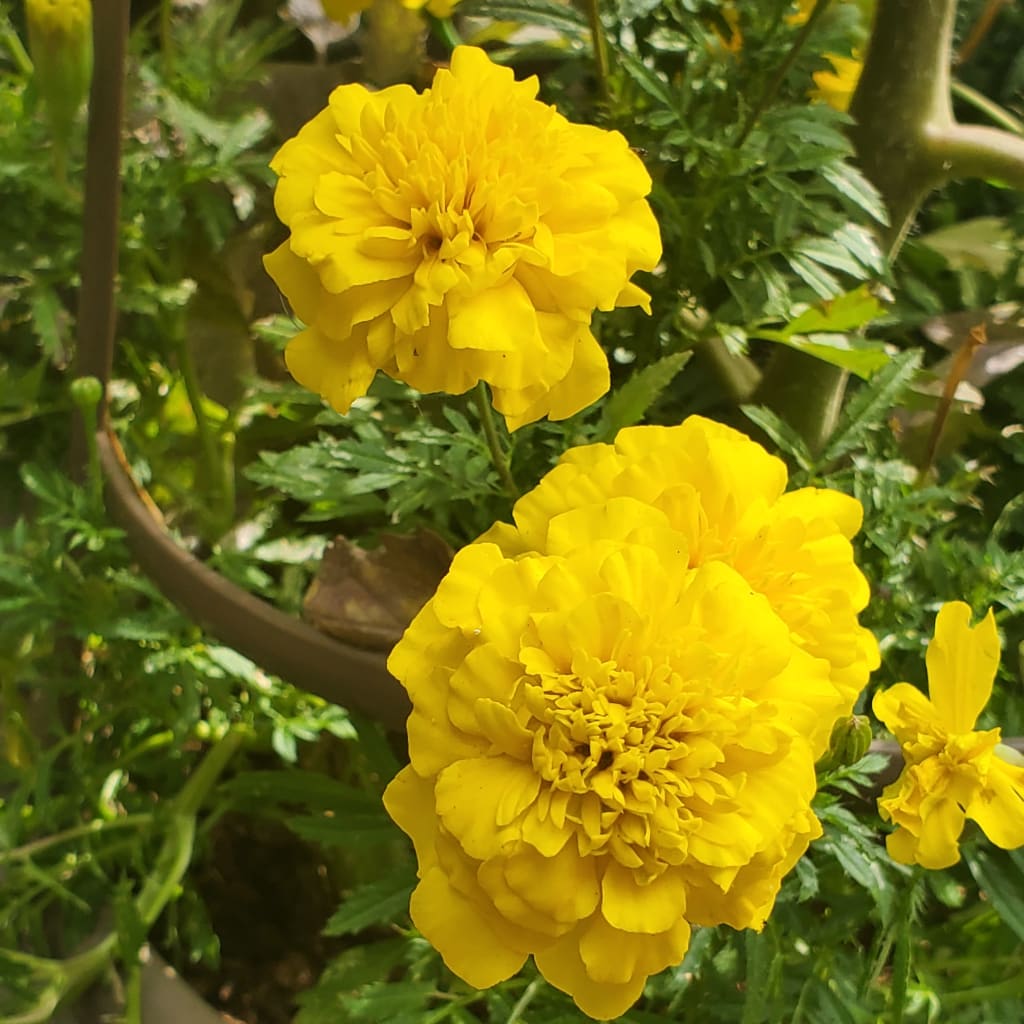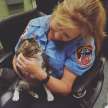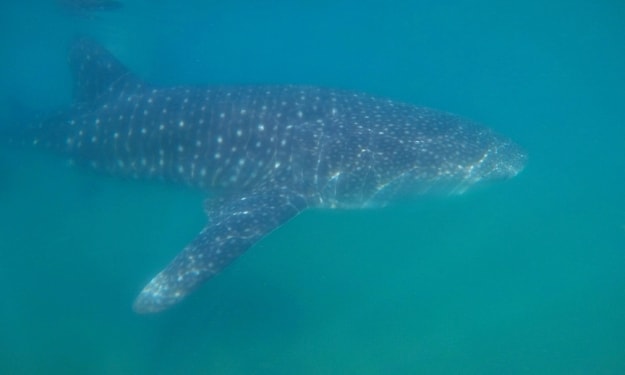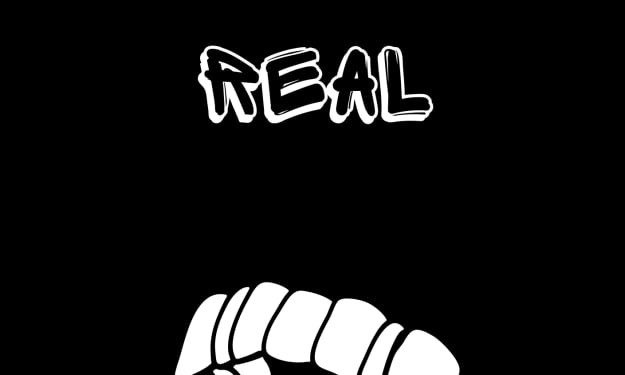The Exter Street Marigolds
A prisoner in searches for redemption by creating life in a garden.

Prisoner H100853 told newcomers his seniority afforded him accommodations with a view. This statement was partially true, as the solitary cells for long term inmates were randomly assigned but most did have a small window. If he stood on his cot, he could peer out of the narrow slab of reinforced glass to see the fields outside where he, and the other participants in Project Green Thumb, grew vegetables in the warmer months.
The ground was starting the thaw now and with great anticipation he looked forward to getting his hands in the dirt again. He liked to think about the microbes in each handful of sod working tirelessly underneath the cover of last year's composted harvest. The blanketed fields allowed the invisible workhorses to add nutrients to the soil that would eventually be incorporated into the leafy greens as they emerged from the ground. The cycle would begin again in a few weeks and Prisoner H100853 was proud to be a part of it..
Growing vegetables provided a reprieve from the monotony of confinement for most of the inmates. Prisoner H100853 knew that his presence in a cage provided a modicum of relief to a long list of harmed individuals. He enjoyed working in the field because it provided him with a sense of atonement. It was hard labor toiling in the fields but to him, it felt as if he were doing something worthwhile. Helping to cultivate plant life which would in turn nurture the lives of his fellow humans on the outside was considered to be an important endeavor.
He enjoyed being out in the sun and feeling the heat on his back as the droplets of sweat gathered together to be absorbed by the material of his work shirt. The salty liquid would evaporate in the heat and although infinitesimal, the moisture would feed the ground slightly. It was all a cycle and he smiled slightly thinking about being one of the independent parts of the entity that brought good produce to people.The efforts of his hands and sweat, along with the invisible microbes in the soil, provided nourishment to others. He hoped, in some way, the people he harmed would benefit from this.
He learned about the microbes when one of the state biologists came into the field one day. The prisoner had been enlightened about the microscopic bacteria and fungi working to add nutrients to the soil, all parts of a biological machine whose independent parts worked together in anonymous but extremely important ways. It was when he first made the connection about his scope in a bigger picture.
Back when he’d been known as KV, he was part of his own entity. His crew, at the time, provided him with a sense of belonging to something strong and important. These friends eventually replaced his family and other, previous friends. It felt right to be part of something larger and he admitted liking the notoriety. What he hadn't realized was how much he became dependent on their acceptance and approval which were necessary to remain connected to the group.
Things, it seemed, ended up taking on a life of their own. KV was caught up in a cycle and he was powerless to leave, at least it felt so at the time. He was bound by loyalty and a friendship bond that he felt obligated to follow through with.
When he pleaded his case to his family, his victims, and the jury, the implication had always been that his intentions didn’t match his actions. However both were completely connected when he and his crew went on their rampage. Of course, KV knew exactly what he’d gotten into and exactly what the intent had been. He hadn’t drawn up the plans but he had played his part as intended.
His mother wrote him off first, long before. She said she tried, she couldn’t get through to him and she wouldn’t have him infecting his new half siblings with his destructive toxicity. One by one the entire family would turn their back on him as his misdemeanors gave him the confidence to graduate to the felonies. The list of the people he’d harmed grew longer and longer and at the time he never considered that his own name was on that list.
The person who had done those terrible things was someone he no longer recognized but at the same time was still intimately familiar with. That person wasn’t blameless but he wasn’t innocent. He didn’t pull the trigger but if he hadn’t played his part, the bullets never would have reached the targets. That person had left him and been replaced with a field of remorse as vast as marigold gardens on Exter Street.
He had never forgotten the look of disappointment in his Uncle Hal as he watched at the last trial, the one with the longest implications. Hal was the lone representative of his family. Perhaps he had his own regrets. He couldn't save Marnie, and now he’d lost another person he loved. Uncle Hal seemed weak and frail; he would succumb to his own cancer not long after. KV would always feel as if he had been the catalyst.
Uncle Hal had been an urban beekeeper before beekeeping became a popular activity among the hip and ecocentric gentrifiers who took over the neighborhood eventually. They even bought Uncle Hal's house, a house he’d always promised to give to the younger members of the family in his will but legal bills had forced him to sell early.
Uncle Hal sold his honey at the Exter Street Farmers Market. When he was younger he would work with his Uncle Hal at Exter Street. He had fond memories of those Saturday mornings on the other side of town. Uncle Hal would set up the stand by his van in the corner of the parking lot near the open fields by the old railway where marigolds sprinkled the fields beyond them.
Customers would come by and tell his Uncle how knowledgeable his nephew was about honey and bees and his Uncle would beam. Selling at the farmers market was as much of a hobby as his honeybees and he turned over any of his profits to his young helpers. He took all the cousins to the market at one time or another, but Kevin, as he was called back then, was the only consistent one.
There were many heart to hearts with his favorite uncle while Hal looked after him as his mother worked one of her three jobs. Uncle Hal had taught him many things he now looked back on, things he hadn’t given much credence to when he was young and foolish.
He taught him about bees and honey but also more subtle lessons about ‘please and thank you’s. He pointed out how a door held open, a smile returned, and other small gestures that were hardly an effort, brought huge rewards. He impressed on him about always being there for the ones you loved, even when they disappointed you, especially so. Aunt Marnie had done that for him, he said. Talking about Aunt Marnie always brought a tear along with a smile.
Hal and Marnie never had any children of their own. For as long as he could remember she was battling one form of cancer or another. She died when Kevin was very young. What he did remember about her was her smile and her love for flowers.
Aunt Marnie was a freestyle gardener. She bought whatever was on sale outside the local supermarket. She favored bright colors but also liked to buy plants that looked like they needed some TLC. There was never much of a plan except that she felt a need to fill up the alley between their house and their neighbors with as many flowers as she could. The strip of grass received an abundance of light from the sun and Aunt Marnie thought the smiling faces of flowers deserved to be looking up at it.
All of her flowers had personalities, he remembered. It wasn’t just for the children that she would say the lavender were stoic soldiers and the forget-me-nots were adolescents. The workers at the supermarket recounted, at her large funeral, that she’d told them too of her opinions on the character traits of plants.
She said the zinnias were careful parents looking over the impatiens, which were mischievous children. The morning glories told secrets to the other flowers and the geraniums were teens trying to figure out what they wanted to be. The marigolds were just perpetually happy optimists.
The marigolds were always alert and smiling to Kevin. Marigolds never passed judgement. They were dependable, hardy plants. Aunt Marnie joked that they fared the neglect of young cousins who forgot to water early in the mornings better than her other flowers.
Uncle Hal seemed to like them too because they reminded him of his true love. They also reminded him of his pain; he’d made sure that the small plot of grass outside their bedroom window had an abundance of marigolds for Aunt Marnie to look out at when she could no longer get out of bed. But he told the young Kevin that the pain of losing a loved one should never make you forget the joy they brought into your life.
Prisoner H100853 always went back to Exter Street in his mind’s eye in the same way Uncle Hal continued to plant marigolds on that strip of land. For him, it was a time of endless potential. The potential had been squandered but it had given him an appreciation for growing things.
He tried not to think back to those memories that filled him with sadness and regret. Enough time had been spent beating himself up for the poor choices, missed opportunities, and people long gone. He tried to move forward with any chance at redemption. He was limited in his ability to salvage the past but perhaps his small role towards the future could move things forward.
Sometimes now, the prisoner would climb onto his cot to look out of that narrow slab of glass and imagine the empty fields of the prison agriculture project filled with a vast array of marigolds of every variety. He’d picture it exactly as he remembered the market corner on Saturdays with Uncle Hal. He’d lost his family, his name, his freedom but as far as his mind knew, the bright sunny flowers were still there, in the fields by the Exter Street Farmers Market.
.
About the Creator
Nancy Gwillym
I'm a soon-to-be retired paramedic in NYC. I'm also a crazy cat/bird/etc lady who writes stories. Thank you for reading!






Comments
There are no comments for this story
Be the first to respond and start the conversation.